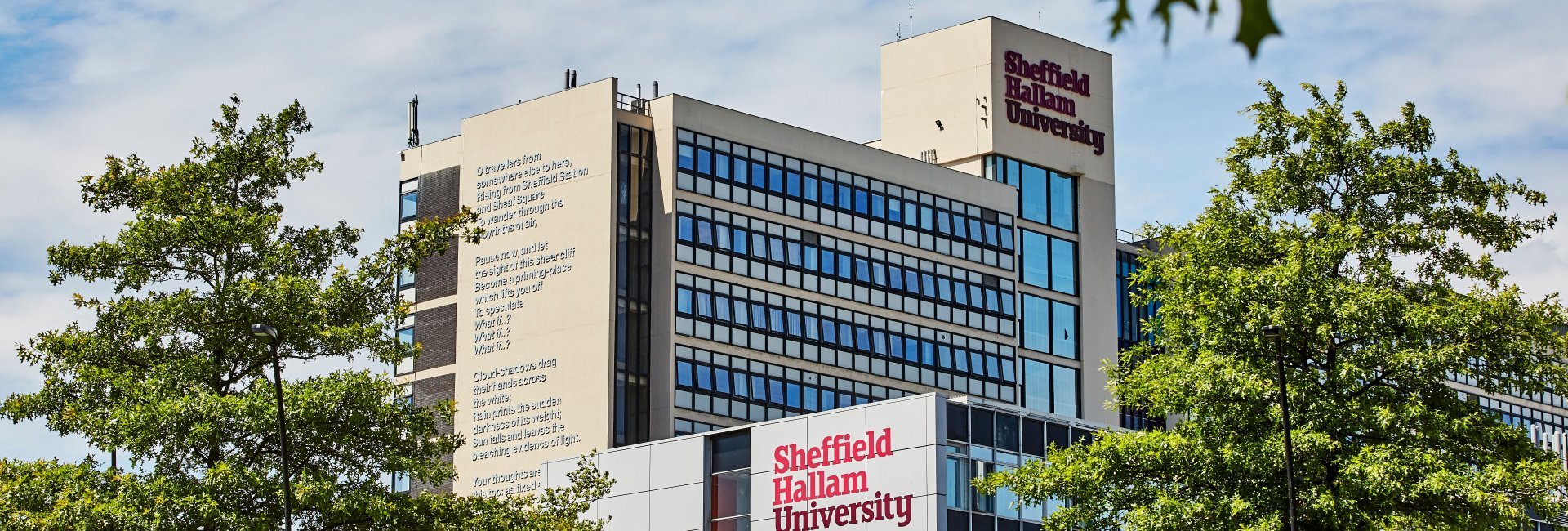Sheffield Hallam University - applicant open day event
28 Feb 2026, 09:30
Sheffield


Please check the Sheffield Hallam University website for the latest information.
This course is moving into one of our new buildings at City campus. Teaching will be delivered at our Collegiate campus during the 2024/25 academic year while we get our new facilities ready. After that you will study in brand new facilities at City campus.
Course summary
Experience award-winning teaching recognised by the British Society of Criminology.
Gain experience at the Helena Kennedy Centre for International Justice.
Develop expertise in social justice, global human rights and criminal justice.
Engage in ethical and social justice issues, driving positive social change and inclusivity.
Study theoretical, conceptual and practical applications of criminology in the real world, including how climate change relates to criminal behaviour and social justice. Engage in pioneering research in topics like prison reform and green criminology, exploring key debates around how to define, explain and respond to criminality – all preparing you for criminal and social justice roles.
If you don't meet the entry requirements for this course, or you’d like extra preparation before starting degree-level study, we recommend you join the foundation year.
How you learn
Our courses are designed around a set of key principles based on engaging you with the world, collaborating with others, challenging you to think in new ways, and providing you with a supportive environment in which you can thrive.
Many of our criminology experts come from professional practice, including prisons, probation and the police. Others are actively involved in current criminological research, providing you with contemporary research-led teaching and delivering real-world impact.
You’ll also engage with external partners and practitioners, gaining the contemporary knowledge, skills and attributes you’ll need for a professional career in the criminal justice or social justice sector. Our goal is to prepare you for further professional training or equivalent pursuits.
You’ll focus on key foundational areas such as the criminal justice system, human rights and values, and social science research methods. Through these you’ll build specialist knowledge of the causes and consequences of crime and deviance within a social, political and international context.
Our course is closely linked to the Helena Kennedy Centre for International Justice. Our teaching directly addresses ethical and social justice issues concerning the inclusion and exclusion of various vulnerable groups – with an emphasis on promoting access to community resources.
Our curriculum integrates various opportunities for applied learning, drawing upon real-world sector contexts. You'll participate in an applied project to enhance your practical skills. These include student placement modules and activities with criminal justice and third sector agencies – as well as project work with external agencies, simulation modules, and voluntary work through our employability fair.
Applied learning
Your course has been designed to embrace real-world challenges and provide you with the practical skills and knowledge to be successful within your chosen sector.
Work Placements
You’ll have the opportunity to arrange a year-long work placement in between your second and third years. This gives you valuable work experience to prepare you for your future career – and allows you to graduate with an Applied Professional Diploma to add to your CV.
Previous students have completed placements for companies and organisations such as the Community Rehabilitation Company, HMP Doncaster, Independent Domestic Abuse Service and Victim Support.
International Opportunities
As our curriculum incorporates international perspectives throughout your degree, you'll develop into a globally aware and engaged practitioner.
This course may be available at alternative locations, please check if other course options are available.
Course optionsThis section shows the range of grades students (with UK A-Levels or Pearson BTEC Level 3 National Extended Diplomas) who received offers were previously accepted with (learn more). It is designed to support your research but does not guarantee whether you will or won't get a place. Admissions teams consider various factors, including interviews, subject requirements, and entrance tests. Check all course entry requirements for eligibility.
Students aged 17/18 who applied to this course were offered a place.
See how students with your grades have been accepted onto this course in the past.
Choose a specific option to see funding information.
Course optionsScholarships, discounts and bursaries may be available to students who study this course.
City Campus
Howard Street
Sheffield
S1 1WB
Phone:(+44) 0114 225 5533